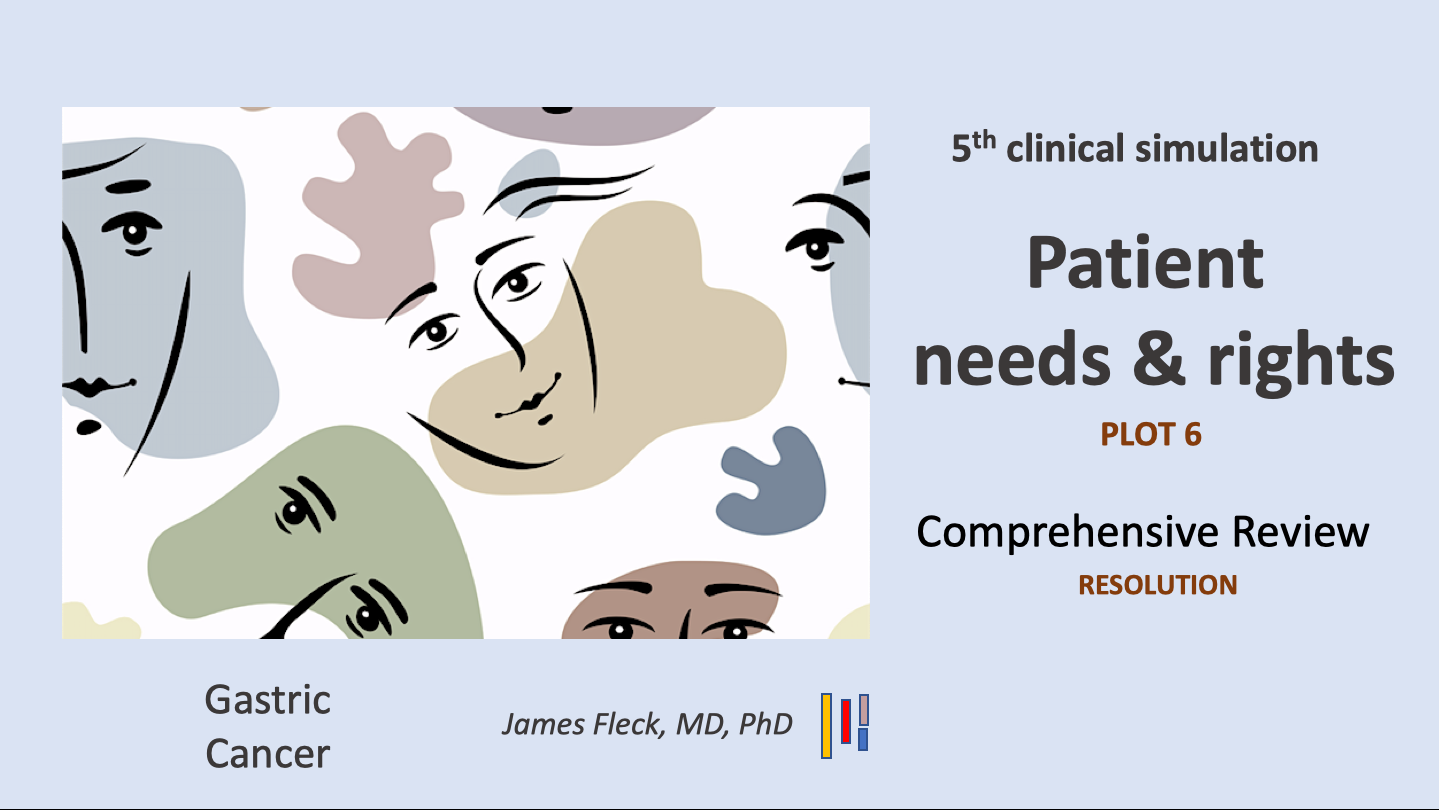
Resolution of the Fifth Clinical Simulation
Take-home Message
Exercising a universal and humanitarian vision
(Fictional narrative by the doctor)
James Fleck, MD, PhD: Anticancerweb 26 (03), 2020
One advantage of medical science is its universality. It is constantly supported by a cooperative multidisciplinary task-force. Each new finding is immediately publicized and shared with the scientific community. Medical researchers are mainly driven by humanitarian purposes. The publication is made in peer-review international journals both for biological advances and clinical trials. When the evidence reaches a high level of clinical impact, the knowledge is quickly incorporated into practice and widely disseminated using multimedia resources.
Milton realized that clinical practice should follow the same rules. He had suffered from physician malpractice and from the incompetence of an institution that had lost all his clinical data. Using his time off work, he develop a new concept of health file focused on patient’s perspective. He devised a patient-centered open-source platform, globally accessed using a non-transferable username and password. He placed the patient's electronic health file on the internet. He stored the records in the cloud, giving them a remote access anywhere in the planet and in real time. Milton was a very intelligent man. He expressed lightness, fluidity and detachment in his relationships. He had a social vision. His ideas would lead to a e-PHR, breaking a paradigm and generating behavior change. PHR means Personal Health Record and is preceded by the letter e because it is in an electronic (digital) format, specially designed to facilitate the upload of all patient’s health data. His system was centered on patients’ needs and rights. The record would belong to the patient, like an identity document (ID). Patient would be required to fulfill the register and work at the management icon of his e-PHR. Everything else would be provided by attending physicians, who will be responsible for clinical data quality. Physicians will be oriented to create a problem list, according the worldwide known problem-oriented medical record described by Lawrence Weed. A data base composed by clinical history, physical exam and some preliminary laboratory data would support each listed problem. Based on each numbered problem, physician will define his intervention planning, which should be kept under surveillance and recorded in progress notes until it is resolved. Additionally, reports, images and videos of diagnostic exams would be uploaded by attending physicians into the designed icon. Patients will be stimulated to actively interact with their physicians to better qualify the problem list. Global e-PHR would also provide to the patients an automatic generated timeline of events and a summary including all uploaded information. Patient access to his Global e-PHR would be based on exclusive username (UN) and password (PW). Only the patient will have the right to share his clinical information. At patient’s discretion, sharing his Global e-PHR should be restricted to professionals or institutions directly involved in his healthcare. Medical care would be universal.
Attention: The story 5 was published sequentially from PLOT 1 to PLOT 6 and you will always see the most recent posting. To read Story 5 from the beginning, just click in the numbered links located at the bottom of the homepage.
Story 6, “The doctor as a coach” is coming soon…
© Copywrite 2020 Anticancerweb
James Fleck, MD, PhD: Full Professor of Clinical Oncology at the Federal University of Rio Grande do Sul, RS, Brazil

It is a very interesting case. The patient. since the beggining, realized that he was facing a challenge, wich would require attention and need attention. The doctor had some doubts about how was the patient perceptio of the whole situation. Nonetheless, along the treatment and the devoloping of the relationship between them, it became clear, as well the trust in the professional has been fully established.
Please login to write your comment.
If you do not have an account at Anticancerweb Portal, register now.